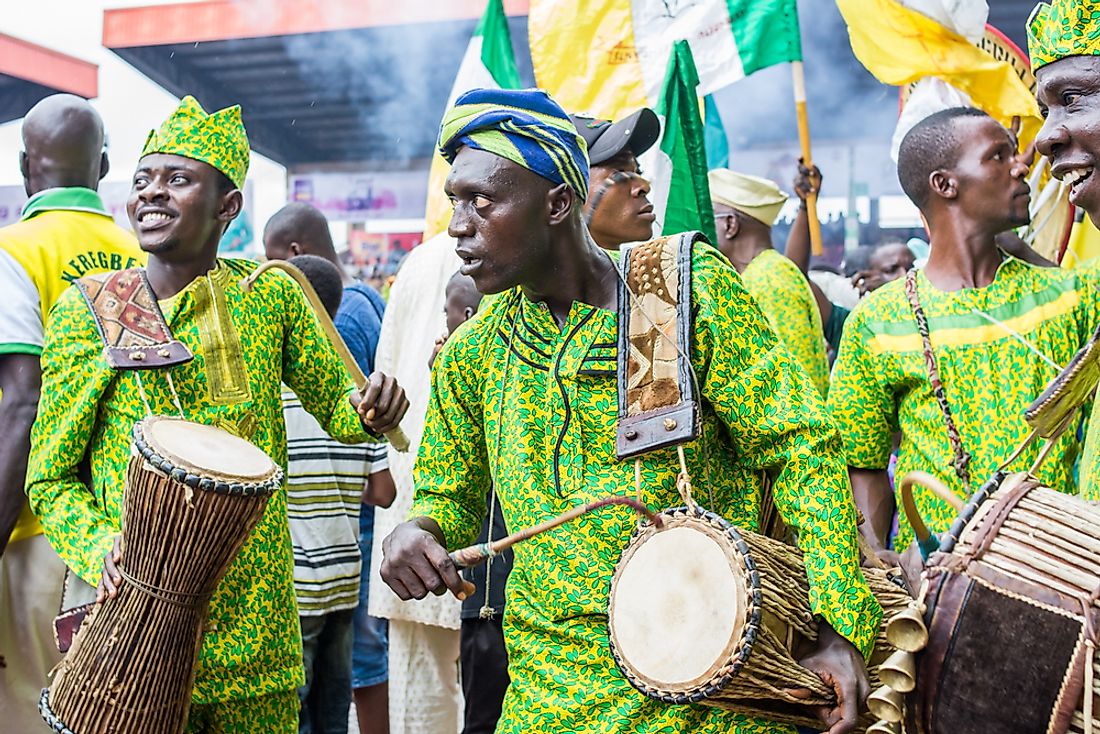What Is The Yoruba Religion? Yoruba Beliefs and Origin

The Yoruba are an ethnic group who live in West Africa. They are currently estimated to be about 44 million people, the majority of whom live in Nigeria where they account for about 21% of the country's population. It is one of the largest ethnic groups in Africa, and they speak the Yoruba language. Yoruba communities also live in other countries besides Nigeria which include Ivory Coast, Ghana, Sierra Leone, Liberia, Dominican Republic, Puerto Rico, Cuba, Saint Lucia, Venezuela, Trinidad and Tobago, Granada, Brazil, and Jamaica among other regions in the world.
Yoruba Religion
The Yoruba religion system comprises of traditional practices and spiritual concepts which has evolved into a robust religious system. The Yoruba traditional religion believes that all human beings pass through what is known as Ayanmo which translate to destiny or fate. Therefore, according to the Yoruba, humans are eventually expected to become one in spirit with the divine creator who is also the source of all energy, a state which is also known as Olodumare. Besides, every action or thoughts of an individual in the physical realm interact with other living things, and each tries to achieve and find destiny in the spiritual sphere. According to religion, an individual who stops growing spiritually in any aspect of their lives are destined for invisible potsherds. Life and death in the Yoruba religion belief system is a continuous cycle of existence in different forms of physical bodies while an individual's spirit evolves towards transcendence.
The Yoruba people believe that before one is born, they determine their destiny. They decide long before they ever arrive on Earth on what they will be doing in the world, where they will live, and who they will love, and even on how they will die. The religion also states that after one is born into the world all their plans and promises are forgotten and similarly their destiny is even forgotten. An individual, therefore, tries to remember and claim the future they mapped out before they came into the world. God is an all-powerful being who is not limited by gender and is the supreme deity among the Yoruba community. It is believed that he lives in the skies. The communication between people and God (Olodumare) is carried out by the intercessors commonly known as the Orishas.
Orishas
The orisha in the Yoruba religion function in almost the same way as the Catholic Saints and they are the intercessors between the world of humanity and the divine world. They often act on behalf of the worshippers on Earth and even sometimes against them. There are many different types of Orishas in the Yoruba religion, and it is believed that some were present at the time of creating the world while others were actually human beings who transcended into a semi-divine state.
Others take the form of natural resources like a river or a tree or anything else in the environment. The Orishas marry, divorce, drink, eat, and have a taste of virtually anything from alcohol to music and anything else that humans also have a taste.
Reincarnation
The Yoruba religion does not emphasize salvation as in the Christian faith but instead focuses on living a good life. According to religion, reincarnation is not something to be escaped as it is in Buddhism but rather a good thing. Defiant people or those who commit suicide and other cruel people are not reborn. Children are believed to be the reincarnation of ancestors particularly the ones they resemble. To emphasize the concept of reincarnation in the Yoruba religion names such as Babatunde which translate to “father Returns,” Yetunde which translates to “mother comes back again,” Babatunji which translates to “father wakes up” is commonly used. Reincarnation according to the Yoruba religion, gender is not an issue, and it is believed that it changes with reincarnation.
Ajogun
In Yoruba traditional religion there are beings known as Ajogun which represent the negative forces and they can cause accidents, illnesses, depression, or any other form of calamity in the society and they are almost equivalent to demons. These deities are supposed to be avoided, and people who are afflicted by Ajogun would have to visit a priest (Ifa) to perform some kind of divination rituals and to prescribe a way of getting rid of the troubling spirit. In Yoruba traditional religion every problem has an explanation which could either be an evil spirit, or one has been bewitched, or they could have upset or neglected and orisha who has to be appeased.
Ashe
The Yoruba religion also has an Ashe which is a force possessed by humans, and gods also possess them. Ashe is a powerful force and can cause change either for good or for bad, and it is contained in virtually everything in nature such as lighting, hurricane, blood, and even names. Ashe is almost similar to the Chi in the Chinese tradition or the Chakras in the traditional Indian beliefs.
Creation In Yoruba Religion
Yoruba religion has an account of creation where the truth was sent to find if the newly formed Earth was habitable for humans. The Earth was one of the several creations, and it was found that it was too wet for humans to live. Later on, different divinities which were led by Obatala accomplish the mission of making the Earth develop its crust to support human life. They ensured that the Earth was fertile and capable of supporting plant life.











